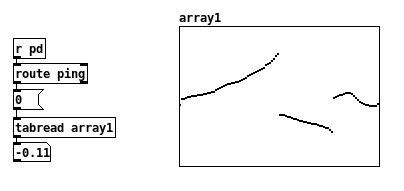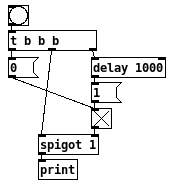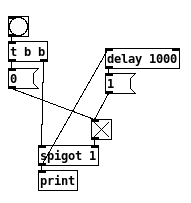Signature
Work in progress : FCPD a FreeCAD PureData connexion
-
-
-
 FFW
posted in technical issues • read more
FFW
posted in technical issues • read more@willblackhurst you generate the combinations but the main subject is the permutations I think.
EDIT: my two cents
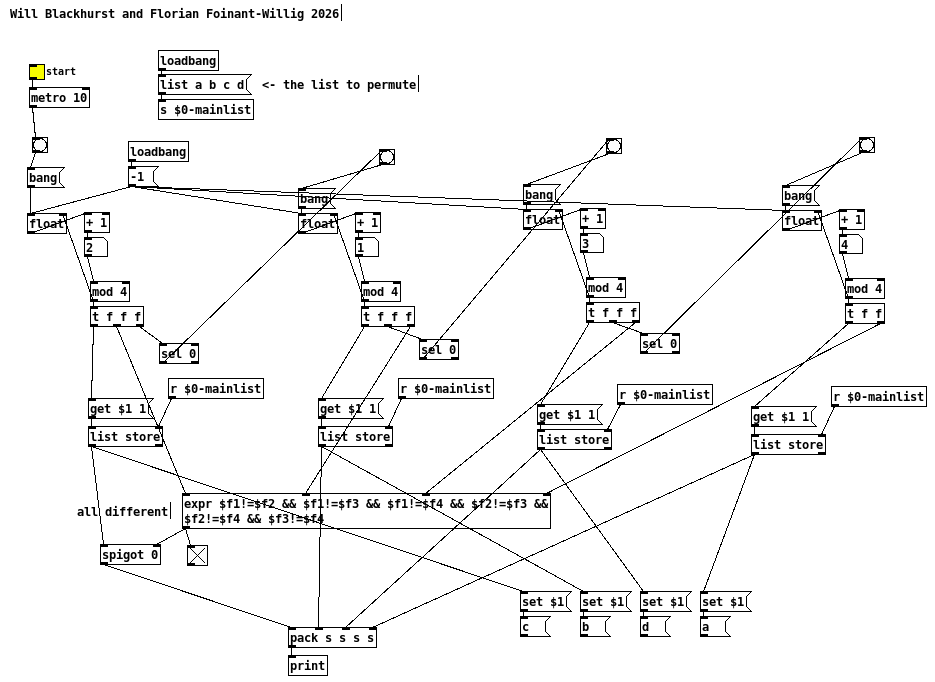
perm4.pd -
 FFW
posted in technical issues • read more
FFW
posted in technical issues • read moreFYI I've played with dynamic display here https://forum.pdpatchrepo.info/topic/15118/tooltip-display-a-message-about-an-abstraction-in-its-parent/1
-
 FFW
posted in technical issues • read more
FFW
posted in technical issues • read moreThe Euclidean definition of the functions div and mod https://dl.acm.org/doi/10.1145/128861.128862
it is unfortunate that the definition of these functions appears to be
handled rather casually in the computer science literature and in the design
of programming languages, as one might infer from various poor “defini-
tional engineering” decisions down to wrong or erroneous definitions, as in
the ISO Standard for Pascal [11, 13], Algol 68 [201], and some other languages.In this paper we clarify the differences between the various definitions, in
particular those based on division by truncation (T-definition) and on division
by flooring (F-definition) as defined by Knuth [141]. We also propose still
another definition, which we call Euclidean because it is based on Euclid’s
theorem (E-definition).April 1992…
-
-
 FFW
posted in technical issues • read more
FFW
posted in technical issues • read more@Moothart @oid's patch with a different arrangement. Patch style is very personal, there is no accounting for taste.
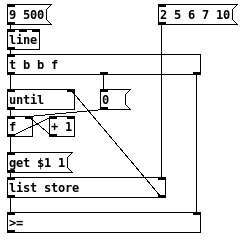
-
 FFW
posted in technical issues • read more
FFW
posted in technical issues • read more@freq63 said:
What I find confusing is the fact that all 4 values are printed without issue separately before unpack.
separately is the word.
[unpack]get the values one (two) after each other so only its (two) first inlet(s) is (are) triggered. -
 FFW
posted in technical issues • read more
FFW
posted in technical issues • read moreThe messages come one by one (or two by two) so the
unpacknever get a 4 items list.You can accumulate the messages to 4 this way:

-
 FFW
posted in technical issues • read more
FFW
posted in technical issues • read moreThis is your triggerized patch:
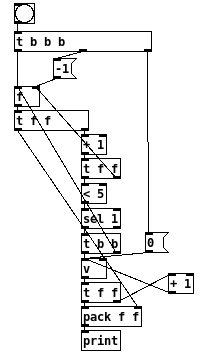
You can see the right branch is triggered before the top-most
[t f f]feeds the[pack]so the numbers are all generated by the loop before they was printed.
EDIT: you stack computation branch and they are released deepest to shallowest so numbers are reverted.

